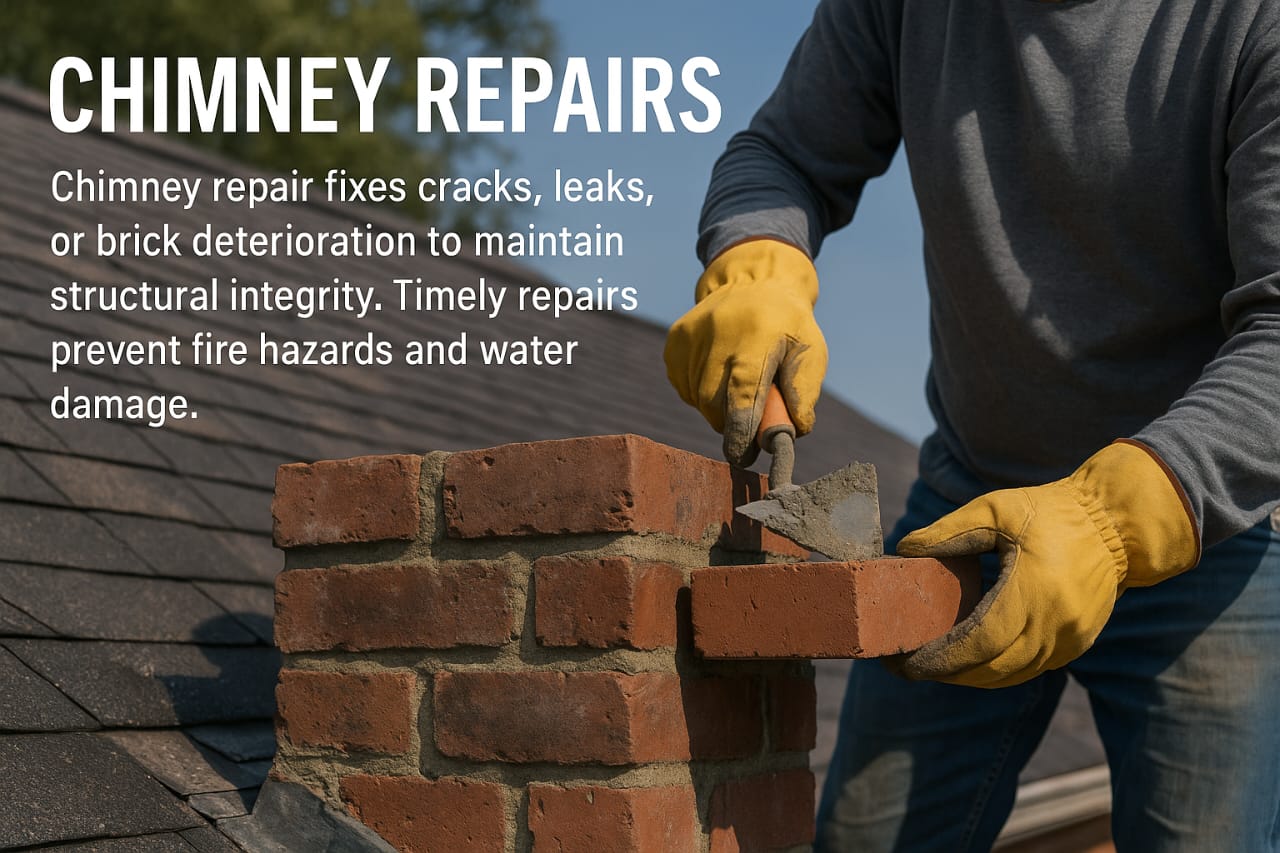
What to Know Before Scheduling Chimney Repair
As someone who has dealt with the joys and challenges of keeping a cozy fireplace working smoothly, I know firsthand that chimney upkeep is not something to put off until the last minute. Before you jump into calling for Chimney Repair, there are several things you should have on your radar to ensure your home stays safe and your wallet doesn’t take a surprise hit. Whether you’ve just noticed a bit of crumbling mortar or you’re prepping for chilly evenings by the fire, understanding what goes into chimney fixes can make the whole process a lot less confusing. So, before you pick up the phone for Chimney Repair, let’s walk through what you need to know.
Recognizing When It’s Time: Signs You Need Chimney Repair
Sometimes, the hints that your chimney isn’t happy are subtle. Other times, they’re about as quiet as a train whistle. If you’ve spotted loose bricks, noticed water stains around your fireplace, or smelled something musty when the weather gets damp, these are classic red flags. Even a little smoke backing up into your living room or white residue (called efflorescence) on the outside bricks can mean trouble. If you’re hearing birds or critters up there, you might not just have a wildlife issue—sometimes, animals make their way in because of cracks or missing covers.
It’s also wise to book a chimney inspection if you’ve moved into a new place or haven’t had yours checked in a while. Regular checks help catch small problems before they become major headaches. In fact, most experts recommend having your chimney looked at once a year, even if you only use your fireplace occasionally.
“A well-maintained chimney doesn’t just keep your home cozy—it keeps your family safe.”
How to Choose the Right Pro: Finding a Trustworthy Chimney Repair Service
Not all chimney repair services are created equal. It can be tempting to go with the first company that pops up in your search results, but it pays to do a little homework. Look for a team that’s certified by organizations like the Chimney Safety Institute of America (CSIA) or a similar reputable group. This tells you they know their stuff and follow the latest safety standards.
Also, ask about their experience—chimneys come in all shapes and materials, and older homes may have unique quirks. A seasoned pro should be able to spot issues in both new and antique masonry chimneys. Don’t be shy about asking for references or checking reviews from other homeowners. And—this is important—make sure they have proper insurance. Accidents happen, and you want to be covered just in case.
Here’s a quick table to help you compare chimney repair services:
| What to Check | Why It Matters | Questions to Ask |
|---|---|---|
| Certifications | Ensures up-to-date safety and repair knowledge | “Are you CSIA certified?” |
| Experience | Older chimneys may need special care | “How long have you worked with my type of chimney?” |
| Insurance | Protects you in case of accidents | “Can I see proof of insurance?” |
| References/Reviews | Gives insight into reliability and quality | “Can you provide references?” |
Budgeting for the Unexpected: What Affects Chimney Repair Costs?
If you’re like me, you probably want to know what you’re getting into, cost-wise. Chimney repair costs can swing quite a bit based on the problem and the materials involved. Simple fixes like swapping out a damaged chimney cap or resealing mortar joints are usually on the lower end. But if you need to rebuild parts of the chimney, replace the liner, or fix water damage, the price tag can rise quickly.
Here are a few things that can bump up the cost:
- Height and accessibility: Tall chimneys or those stuck in hard-to-reach spots may require extra gear or labor.
- Type of repair: Structural repairs or full liner replacements cost more than basic maintenance.
- Materials: Matching old bricks or sourcing special masonry can add to expenses.
- Hidden issues: Sometimes, what looks like a minor crack reveals bigger problems once work starts.
To keep surprises to a minimum, ask for a detailed estimate and get any agreements in writing. Don’t forget to budget for a chimney sweep or cleaning before the actual repair—creosote buildup can hide problems or make repairs tricky.
Getting Ready: How to Prep for Chimney Repair Day
Once you’ve found your repair crew and scheduled a date, there are a few things you can do to make everything go smoothly. Start by clearing the area around your fireplace or stove—move furniture, rugs, and decorations out of the way to prevent dust or soot from settling in. If your repair involves work on the roof, make sure there’s a clear path outside and that pets are safely indoors.
It’s also wise to ask your repair team if they’ll need access to attics or crawl spaces. Some repairs require checking the chimney’s interior from multiple spots. And remember, if you’re having masonry work done, there might be some noise or vibrations—so it’s not a bad idea to let your neighbors know ahead of time.
Finally, after the work is done, ask for a rundown of what was fixed and any maintenance tips for the future. Keeping a record of repairs can make resale easier if you ever decide to move.
Conclusion: Take the Stress Out of Chimney Repair
In the end, getting ahead of chimney problems saves you time, money, and a whole lot of hassle. By paying attention to warning signs, choosing a trustworthy pro, understanding what could affect your bill, and prepping your home, you’ll be setting yourself up for a smooth repair experience. A little preparation goes a long way, and with the right approach, Chimney Repair becomes just another simple step in caring for your home’s comfort and safety.
Read More: Jacksonville Chimney Sweep


